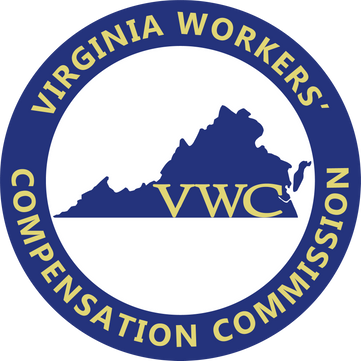Medical Fee Services eNews

Q4
2022
Virginia Workers' Compensation Commission
Regulatory Focus
65.2-605(N) The CPT code and National Correct Coding Initiative rules, as in effect at the time a medical service was provided to the claimant, shall serve as the basis for processing a health care provider's billing form or itemization for such items as global and comprehensive billing and the unbundling of medical services. Hospital inpatient medical services shall be coded and billed through the International Statistical Classification of Diseases and Related Health Problems, as in effect at the time the medical service was provided to the claimant.
From the MFS Desk
The Medical Fee Services Department establishes and maintains medical fee schedule quality standards for the Virginia Workers’ Compensation Commission. This quarterly issue places additional focus on Medical Fee Services Administrative Dispute Resolution and highlights stakeholder inquiries regarding Correct Coding Initiatives and the administrative determination process. This edition points out some general information that may assist medical providers and payers.
The Ground Rules document in combination with the schedules provide instruction on how to interpret the medical fee schedules in the absence of a contract or negotiated agreement for medical services and is the foundation for the administrative determination process.
Three important areas within the Ground Rules Document include:
Introduction
This section identifies key changes that are effective with each schedule in comparison to a prior schedule such as a change in reimbursement from per service to per unit.
Definitions
Provide descriptive meaning for terms that may also include additional identifying information such as the reference to (see “Taxonomy Code”) in the definition for a surgeon.
General Information
This section covers general topics such as exclusions, applicable coding conventions, billing and payment adjustments and modifiers.
MFS Ground Rules Application Question and Answers
Q1
I have reviewed the MFS Ground Rules and see that the National Correct Coding Initiative edits are mentioned, but I have some specific questions I am hoping you can help me with. This is in regards to the National Correct Coding Initiative Edits (NCCI) which can be downloaded from CMS, regarding NCCI PTP (NCCI Procedure to Procedure) and NCCI MUE (NCCI Medically Unlikely Edits).
- Can you please advise if the state billing, coding, or fee schedule rules adopt any or all the edits above?
- If not, does the state recognize these edits either formally or informally?
- Are there any specific rules or restrictions within the statute or administrative rules to prevent the use of these edits?
Answer
The Ground Rules document identifies in the absence of a contract or negotiated agreement, to receive reimbursement for medical services when ordered by the Commission, medical service must be described by applicable coding conventions and in accordance with 65.2-605(N). CPT as developed by the AMA provides a listing of descriptive terms and five-character identifying codes and modifiers for reporting medical services and procedures. Codes are listed in the MFS with the associated maximum fee. Applicable coding conventions employ commonly used coding to promote reporting that precisely identifies the applicable service(s). The Ground Rules document describes some commonly used coding conventions as:
The inpatient hospital services portion of the MFS utilizes DRGs as the primary coding system. The inpatient rehabilitation facility services portion of the MFS utilizes DRG codes, Revenue Codes, and CMG codes as the coding system. Most outpatient hospital services, services provided in an ambulatory surgical center setting, and professional services utilize Current Procedural Terminology, (CPT®) codes which are copyrighted by the American Medical Association (AMA). The CMS Healthcare Common Procedures Coding System (HCPCS) Level II coding is used for certain supplies and materials, and ambulance services
Q2
Answer
A modifier is a two-digit value added to the CPT/HCPCS code to report a service or procedure performed has been altered due to a specific circumstance. Modifiers 59, 25, 26, and AS are examples of modifiers commonly encountered by the Medical Fee Services Department (MFS) when processing Medical Fee Schedule disputes. The MFS Department reviews all medical documentation submitted by the parties in completing administrative determinations for disputes pertaining to denied or reduced services where modifiers are listed and assigns the determined fee value based on the details of the specific case.
The CPT/HCPCS modifier section of the Ground Rules document provides additional details regarding fee schedules reimbursement applicable when the service is delivered consistent with the definition of the CPT/HCPCS code for the indicated modifiers.
Note: The Medical Fee Services Department can only provide general information. For specific issues, medical providers, and payers are encouraged to submit the appropriate dispute forms for a formal review of all documentation for each case.
I included a modifier on the claim line; however, the administrative determination did not allow payment for the medical services as billed. Why was an additional adjustment applied to the maximum fee?
MFS Opportunities
Upcoming event for the 2024 MFS Biennial Review is listed below. For a complete listing, please view updates for the 2024 MFS Biennial Review on the Commission Website.
Upcoming Events | 2024 MFS Biennial Review Timeline will be posted to the Commission Website. |
Do you have new staff?
Would you like an overview of the medical fee schedules?
Please send your request to: medicalfeeservices@workcomp.virginia.gov
October 18 and 19, 2023
2023 MFS Symposium
New for the 2023 VWC Educational Conference, the Medical Fee Services Department will hold its first MFS Symposium.
Stay tuned for more information in the coming months.

